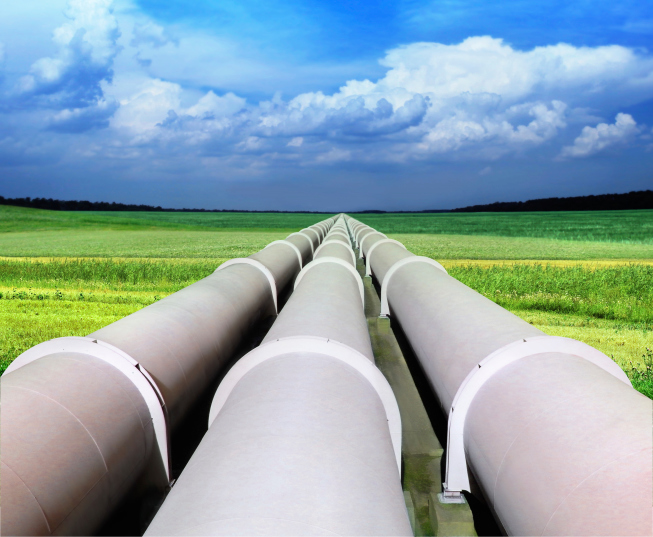By Isaac Orr
The cyberattack that closed the Colonial Pipeline focused new attention on the all-important role pipelines, and the fossil fuels they transport, play in our lives. The Colonial pipeline delivers 45 percent of the fuel consumed on the East coast.
Anyone who pretends we don’t need the energy provided by oil and natural gas products is living in an alternative reality.
Colonial Pipeline is Crucial
The U.S. Energy Information Administration (EIA) reports the Colonial Pipeline stretches 5,500 miles from Houston Texas to New Jersey, carrying 2.5 million barrels of fuel per day. It carries refined petroleum products, such as diesel, gasoline, heating oil, and jet fuel, to the Northeast and several states in the Southeast.
Gasoline prices skyrocketed around the country in response to the closure of the pipeline.
The Wall Street Journal, reported:
Gasoline prices have been surging, pushing up the national average price of a gallon of regular, unleaded gas to $2.96 a gallon, according to the AAA. That national average could soon pierce $2.99 and hit a 6 ½ year high. Gasoline prices could rise 3 cents to 7 cents a gallon this week in affected areas such as Mississippi, Tennessee, and East Coast states from Georgia to Delaware, the automobile association estimated.
While higher prices are never welcomed by consumers, they are more welcome than supply shortages like those that quickly materialized in cities throughout the southeast after the cyberattack forced the Colonial pipeline to shut down.
Running on Empty
As of Wednesday, May 12, 2021, 72 percent of gas stations in metro Raleigh, North Carolina, did not have fuel, according to Gas Buddy. Almost a quarter of gas stations in Tarheel State were out of fuel as of 7 a.m. Wednesday morning. The shortage of supplies led to long lines at gas stations as people panic to fill up and top off their vehicles.
North Carolina was not alone. The Chicago Tribune reported 88 percent of gas stations were out of fuel in Washington, D.C., about half were out in Virginia, 42 percent of Maryland stations were dry, and about half of the gas stations in Georgia and South Carolina were without fuel.
Motorists desperate for fuel turned to Gas Buddy as a means of finding out which gas stations had gasoline in order to score a few gallons, reminiscent of shoppers scouring grocery stores for toilet paper during the onset of the COVID-19 pandemic.
Oil and Gas are Indispensable
For all the buzz around electric vehicles (EVs), wind turbines, and solar panels, they provide very little of the total energy we use in our daily lives.
The New York Times reports fewer than 1 percent of vehicles on the road today are electric. EIA data show solar provides about 1 percent of our total energy use, and wind provides about 2.64 percent.
On the other hand, oil plays an indispensable role in our lives. In the United States, oil accounted for 37 percent of all the energy we used in 2019, and natural gas accounted for 32 percent. This means pipelines are largely responsible for transporting 69 percent of the energy Americans use on an annual basis.
Pipelines, and the oil and natural gas products they carry, are essential technologies that allow our modern society to thrive. Politicians who obstruct the operation or construction of pipelines are denying this energy reality at the expense of the availability and affordability of energy for American families and businesses.
Politicized Pipelines and Whitmer the Witless
Speaking of obstruction, one of President Biden’s first actions in office was to kill the Keystone XL pipeline. In doing so, Biden denied energy reality.
And, Michigan Governor Gretchen Whitmer (D) is demonstrating she still fails to grasp the enormous lesson the Colonial Pipeline closure dropped to the nation: Pipelines are important!
Instead, her administration is pressing ahead with its attempt to close the exiting aging Enbridge Line 5 oil pipeline—a crucial carrier of petroleum products that runs under the Straits of Mackinac—and blocking its safer more efficient replacement, already authorized by the courts, from being completed.
In fact, Governor Whitmer has threatened to sue pipeline operator Enbridge to seize any profits earned by the company for “illegally” operating the pipeline after the administration’s arbitrary May 12 deadline. The threatened fines could equal $1.8 million per day.
Whitmer’s pipeline policies will act as a self-inflicted Colonial Pipeline event, leaving Michigan and other states in the region with fuel shortages. Closing the Line 5 pipeline would put the supply of propane—a critical home heating fuel—in the Upper Peninsula of Michigan in jeopardy and cause prices to rise. Rural Michiganders, who already pay more for their energy as a percentage of their income than many other Michigan residents, will be hit the hardest.
Will Colonial Change the Pipeline Discussion?
The Colonial Pipeline closure should serve as a wake-up call to pipeline protestors who pretend we don’t need the energy transported by these pieces of critical infrastructure.
We are as reliant upon oil and natural gas as we are water, a reality that isn’t going to change anytime soon.
Instead of protesting pipelines, we should appreciate the vital role they play in our lives and take steps to secure other pipelines from cyberattacks to prevent a repeat of the Colonial Pipeline hack. We should also build more critical pipeline infrastructure to create a diverse and resilient energy delivery system for the fossil fuels we rely upon every single day.
Isaac Orr (Isaac.orr@americanexperiment.org) is a Policy Fellow specializing in energy and environmental policy at Center of the American Experiment, a Minnesota-based think tank.


























